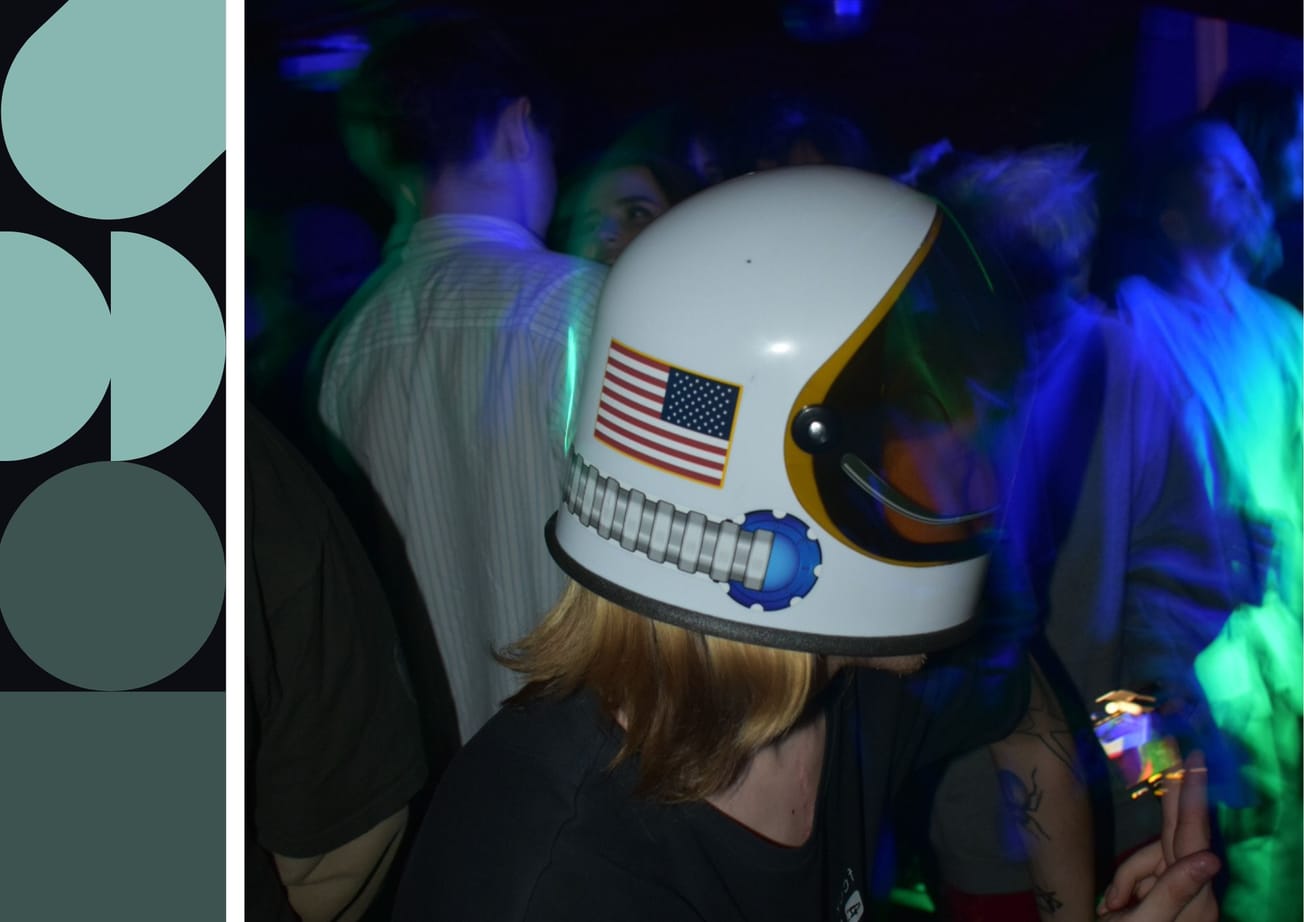By Kate Hutchison, Deputy Music Editor
Assumptions overturned: producer Kowton skypes Epigram Music's Kate Hutchison to chat upcoming projects, Bristolian associations and Drake.
After an amicable introduction at The Love Inn (despite having interrupted his post-set drink) techno producer Joe Cowton agreed to elaborate on his current musical whereabouts. Over a lengthy Skype chat, Joe brings enthusiasm and insight to a usually idle Wednesday morning, as we talk about his neoteric sound, Bristol and beyond.
Joe’s music has unarguably departed from its original influences. With varying characterisations of his sound flooding online articles, I ask Joe what he personally takes it to be:
"I almost wonder if it’s almost getting to the point where it kind of is like a – excuse the pun – but a Livity Sound."
Livity Sound is the label founded in Bristol by Joe, Tom Ford (Peverelist) and Craig Sennett (Asusu.) Highly esteemed for producing a sound that disobeys the usual dance-floor mix formula, Livity makes the monotonous engaging; scattering nondescript samples across unmelodic and deeply percussive foundations. Their output entices listeners without the usual hooks. Yet, despite having moved to London a few years ago, the associations between Kowton, the collective and Bristol remain the most common. In response to this, I ask Joe what he thinks of these perpetual associations, and whether it has been overplayed:
"It’s a blessing and a curse, isn’t it? Bristol has this amazing heritage, I think it would definitely be disrespectful to disregard all of that, but there was definitely a point where everything coming out of Bristol was kind of painted with this brush of being this ‘Bristol-sound,’ and not that it was restrictive, but it just seemed to, perhaps, lack a bit of nuance for the various things coming out of Bristol at the time. It’s a little bit of a simplification. But to be honest, it’s a great city, and it’s not a bad place to be associated with."
Joe tells me it is "undoubted" his sound would have been different if it had not been for Bristol, but entertains the thought that Bristol played the role of a "springboard," and that Livity was rather a concept looking to create something new, and not to be just "another Bristol label doing more of the same."
Our conversation moves to the topic of trend and sound. With the popularity of dubstep in steady decline, while formerly being a prominent aspect of his sound, I ask Joe whether he thinks trend has influenced his production:
"If I sense something is getting overcrowded I try and move beyond it. I guess my output has become more 4/4. That’s a bit of a trend for that – you could say. I’m more interested in trying to push new ideas and trying to do something new. I think if you were to literally sit down and watch what everyone else was doing and followed that path it would be quite a despondent way to be making music. I don’t think that’s a good way to inspire yourself at all. Use things to push off by all means, but actually following anything isn’t that positive a place to be really."
In contrast to dub, disco has seen a glaring popularity recently, with huge names such as Hunee regularly dedicating full sets to funky vinyl collections. While we talk about the influence of trend on sound, and with disco being one sound unfamiliar to his own – I ask Joe’s opinion on it:
‘There’s a lot of great disco records – it’s not something I’ve ever been that into. It was a bastard to mix so I never really got into it.
"You have this permanent rotation of sounds coming around and being kind of expanded on or reduced or tweaked in some way that makes releases slightly different from the last time it was relevant – that just seems to be the way things go forward at the moment."

Despite recognition of music’s reformative rotation, Joe involuntarily embodies an outsider take on the innovation of sound – and it seems to be working just as well. He is one of many, formerly Bristol-based names to be recognised way beyond the South West: Livity Sound has a monthly slot on London-based, online radio station NTS, an outlet which Joe labels a "very genuine institution:"
"It gives you a listener base that isn’t just your mates, or people that are obsessed with the minutiae of dance music. It can be while someone is making their dinner, and you can be playing them some record that they’d probably never otherwise hear. Maybe they hate it, maybe they love it, but it gives you the opportunity to do that, and I think that’s vital."
But it’s not just the techno-addicted audiences of NTS who like Livity. Drake recently sampled Peverelist’s ‘Roll with the Punches’ on a Twitter clip, whereby the artist’s voice can be heard over cuts of the track. Despite laughing among ourselves at the complete novelty of such recognition, and after facetiously alluding to Tom’s disinterest in it, Joe turns to the deeper significance of the video:
"Drake is a kind of cultural barometer: being sampled by him is, like, about as big as it gets, right? I think if it gets Tom a larger audience from it that would be fantastic. We’re very much at the stage where no one really knows what’s going to come out of it yet, but it’d be amazing if it became a big tune. Tom has been grafting for twenty-odd years or whatever – it’d be nice if he finally got a bit of time in the limelight."
Alongside a recent mixtape released on close friend Ron Morelli’s electronic label, L.I.E.S, we talk about Joe’s upcoming agenda. He lists an impressive backlog of new projects, including collaborations with both Peverelist and Parris, and a remix with Randomer and Hodge due for release in a couple of weeks:
‘There has to be so much going on. You need to keep pushing to stay in people’s vision but also just for the fact that if you stop, it’s harder to start again – creatively. It’s no coincidence that if you have a month in the studio, by the end of it you’re really good at it, or at least technically flowing. The ideas come best when you’re technically proficient."
Throughout our discussion, Joe refers to the concept of supportiveness when describing fellow artists and the Bristol scene. In a subconscious testament to this, he’s eager to provide advice for musicians at Bristol when I ask. He’s committed, primarily, to perseverance within music-makers – among some other things: "Be nice to be people who run record labels. Be interesting. Don’t put yourself down."
As well as recommending Cosies as his go-to Bristol venue, the final thing Joe shares is his favourite music at the moment:
‘There is a new Jabu album on Blackest Ever Black, you can get that from Idle Hands – it’s really good. I’m a big fan of Batu. Shanti [Celeste] is on fire at the moment. Beatrice Dillon – she has just done a thing for Batu."
At first, I was somewhat taken aback by Joe’s genuine approachability. But now, I’m not so sure why. Before, I would most likely have assumed established artists like Joe may have been unresponsive, or distant – especially to student journalists. Yet throughout our chat, this assumption of mine has been dimmed – or certainly for now. Assuming makes an ass out of you and me.









